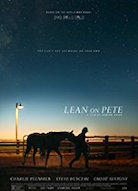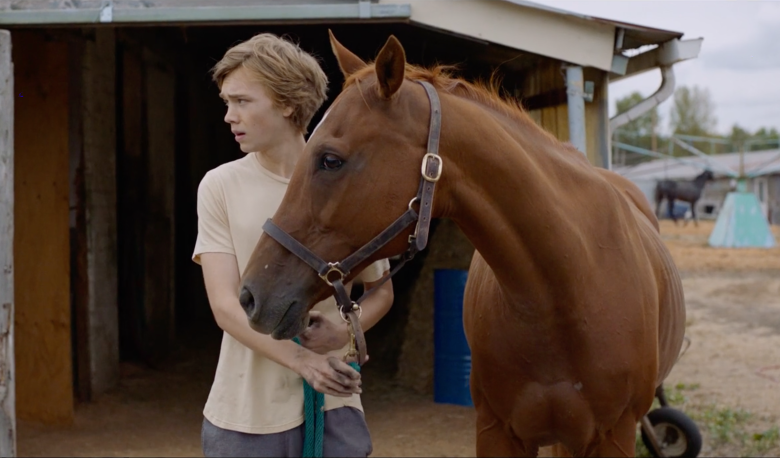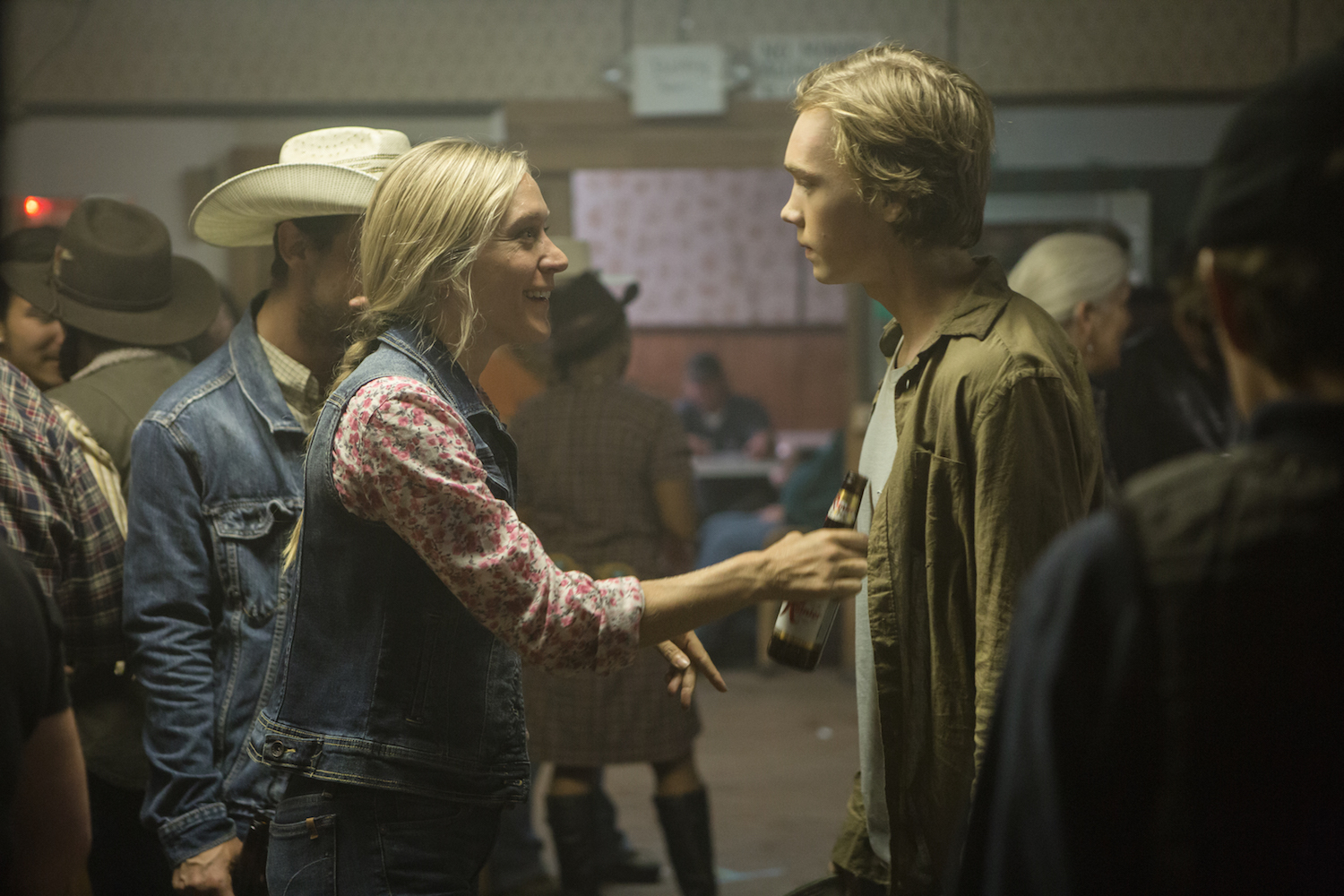Review: Lean on Pete
 Saturday, April 21, 2018 at 1:36AM
Saturday, April 21, 2018 at 1:36AM
by Eric Blume
 Andrew Haigh, the director of the new film Lean on Pete, is a major, major talent. He pulled a career-best (and Oscar-nominated) performance from Charlotte Rampling in his last film 45 Years, made a splash a few years before that with the lovely two-hander Weekend, and his big HBO show Looking was for my money one of the best gay anythings ever made.
Andrew Haigh, the director of the new film Lean on Pete, is a major, major talent. He pulled a career-best (and Oscar-nominated) performance from Charlotte Rampling in his last film 45 Years, made a splash a few years before that with the lovely two-hander Weekend, and his big HBO show Looking was for my money one of the best gay anythings ever made.
Haigh has a particular talent with actors, and also for establishing moments of quiet power within a story. What's more he trusts that that power is enough. These talents are firmly on display in Lean on Pete, the story of 16 year-old Charley (Charlie Plummer) who finds himself completely alone alongside the eponymous, discarded quarterhorse...

While the story of a boy and his horse may not be novel, what Haigh does within the confines of this framework astonishes. He avoids almost every cliché of the genre: there’s no heartwarming score, no easy redemption, no mawkish sentimentalism. The first half of the film sets up Charley’s dirt-poor environment, and the second chronicles his journey with Pete. It’s tough to decide which of the film’s halves plays sadder, as the film is drenched in an alarming authenticity that feels very specific to its location and environment. Charley’s family life exists in front of us with no judgment or comment, and in the second half, the “conversations” between our two protagonists have a sorrowful ache.
Actors Steve Buscemi, Chloe Sevigny, and Travis Fimmel all have small but deeply in-character contributions that breathe life and authority into the film, but it’s Charlie Plummer’s show, as he’s in every scene. Plummer has a great camera face and has that special gift for capturing the truths of an “everykid” but also locking in many specific details that give Charley a full, precise inner life. Haigh does stunning work with Plummer, and they never go soft.

Lean on Pete isn’t really a joyful viewing experience. It’s overlong, and Haigh probably could have left a few scenes out to pick up the pacing. There’s one false note when Charley gets bad news at a hospital, and Steve Zahn’s small handful of scenes feel unfocused. Narrative may not be Haigh’s strongest point. But when he gets to explore a distinct world in a truthful way, Haigh always delivers. The film has at least two dozen of those quietly powerful moments that are Haigh’s specialty: he doesn’t romanticize or mythologize the horse, and all of the relationships in the film are presented in a matter-of-fact manner where the truths leave a long, impressive linger. It makes one wish for Haigh to take on yet another environment outside of what we’ve seen him do, and keep exploring and growing.



Reader Comments (4)
Nice review. I've been on the fence on whether to see this - I love Haigh, but this movie sounds like a bit of a downer, which I'm not sure I have the fortitude for right now.
Just saw this, and really loved it. I'm sad it's not getting more attention, I think what Haigh accomplishes here is remarkable. Plummer is a real find, and Chloe is terrific.
apk paradise
Eric, what an interesting and insightful take on Charley and his interaction with his environment. Here is another thought provoking analysis on the same film that adds to the discussion http://paristotexas.bestonlineblogs.com/blog/ this blogger seemed to agree with you on most points!